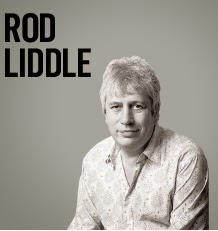Did the Daily Mail Kill Bob Crow? Headline on Guido Fawkes blog which claimed: "The Daily Mail newspaper published a deadly hatchet job on union leader Bob Crow last night just hours before his death from a heart attack, it emerged this morning."
SubScribe: "Crow's sudden death yesterday laid a hypocrisy trap for the self-righteous Press. Unless you are Hitler or Saddam Hussein, newspapers will generally be kind to you on the day you meet your maker. The knives may come out a day or a week later, but a level of restraint is customary on day one."
Max Hastings in the Daily Mail on Thursday: "Last year, two days after Baroness Thatcher died, Crow expressed a fervent hope that she would ‘rot in hell’. There seems no reason why others should not now judge him as he once judged others. Crow was a Marxist, Trotskyite, socialist — call him what you will, he was never sure himself — who saw class war as an ongoing smash-and-grab raid, in which his own function was to blackmail and bludgeon the keepers of the public purse to give his members whatever he could get for them, at whatever cost to innocent bystanders and taxpayers."
Adam Boulton @adamboultonSKY 1h on Twitter: "Tony Benn after Bob Crow a sad week for the populist left and 'National Treasure' collectors."
Daily Mail leader: "Imagine the public outcry if we had a law making it a criminal offence to read the Mail or any other paper without first having bought a subscription to the Guardian. Unthinkable, of course. Yet the extraordinary truth is we already have a very similar law in Britain, which makes it a crime to watch ITV or other channels without first handing £145.50 to the BBC."
Guardian deputy editor @paul__johnson on Twitter: "What a terrific idea from the Mail's leader column."
The Daily Telegraph in a leader: "It is evident that the traditional way of funding the BBC since its foundation in 1922 is coming to an end. The Government is proposing that non-payment of the licence fee should no longer be a criminal offence. This is not before time: some 12 per cent of all cases in the magistrates courts are licence-fee prosecutions. Once the law is changed these will become civil matters – as for not paying an electricity bill."
Emily Bell on Comment is Free on the lack of diversity in journalists hired for new startups: "It is not just the four new (and still exciting) breakout projects of the year: Vice, Quartz, Buzzfeed, Politico, Grantland - these, too, are led by white men, and filled with more of them. It is as if Arianna Huffington never happened. Or as if diversity of leadership and ownership did not really matter, as long as the data-driven, responsively designed new news becomes a radical and successful enough departure from the drab anecdote laden guff put out by those other men."
Rod Liddle in the Sunday Times [£]: "There are many indulgences within the BBC and most of them concern the amounts paid to staggeringly useless executives who seem to feel that if they weren’t toiling away for the public benefit they’d be swaddled in mink by the private sector: yeah, as they say, right. The astonishing thing is that even the Jimmy Savile business — the incompetence, the evasions, the sheer lack of intelligence, the back-watching, the sudden defenestration of a director- general and the utter scorn poured upon the over-remunerated upper echelons of the corporation — has not disabused them of this notion. I don’t think anything ever will. I suppose that if you are a BBC manager, psychologically it is necessary to kid yourself in this manner, otherwise you could hardly go on."
John Humphrys in the Radio Times on cuts to the Today budget on BBC Radio 4: "The problem was that when the previous regime was faced with having to cut its budget under huge pressure, and reasonably so because of the way we saw money was being chucked around - in some cases irresponsibly, big pay-offs to people who shouldn't have had them - you look at your own programme and you think, 'Bloody hell, we could have done with that'."
Kim Fletcher in the British Journalism Review: "Some of us fought hard to prevent ‘content’ becoming the default description of pieces you can read. We failed utterly. An industry that took pride in ‘stories’, ‘features’, ‘articles’ and ‘journalism’ is now happy to reduce its activity to the provision of something with so little obvious appeal it might as well come by the bucket. I have often told friends about an “interesting piece” I’ve read. I’ve never thought that I have “consumed great content”."
IFJ President Jim Boumelha on the murder of Swedish journalist Nils Horner in Afghanistan: "We urge the relevant authorities in Afghanistan to carry out an immediate and detailed investigation into this terrible incident and to ensure those responsible pay for their crime. This appalling murder once again demonstrates the major challenges that continue to face journalists and freedom of speech in Afghanistan and the urgent need for the country's authorities to find ways to provide journalists with the protection they require."
Peter Preston in The Observer: "The Mail helped break open the sad, slimy saga of the Met and Stephen Lawrence: The Guardian cracked open the deceptions of undercover policing. Last week's Ellison review is, in many ways, a testament to both campaigns, and to the fact that – however much rival papers may snipe – they are brothers for purpose under the skin. Now, after Leveson, police channels of information are closed. Officers who talk to journalists can be intimidated, sacked, charged. Yet without whistleblowers in blue, neither campaign would have made such progress. When the heart rots in private, nobody knows."













No comments:
Post a Comment